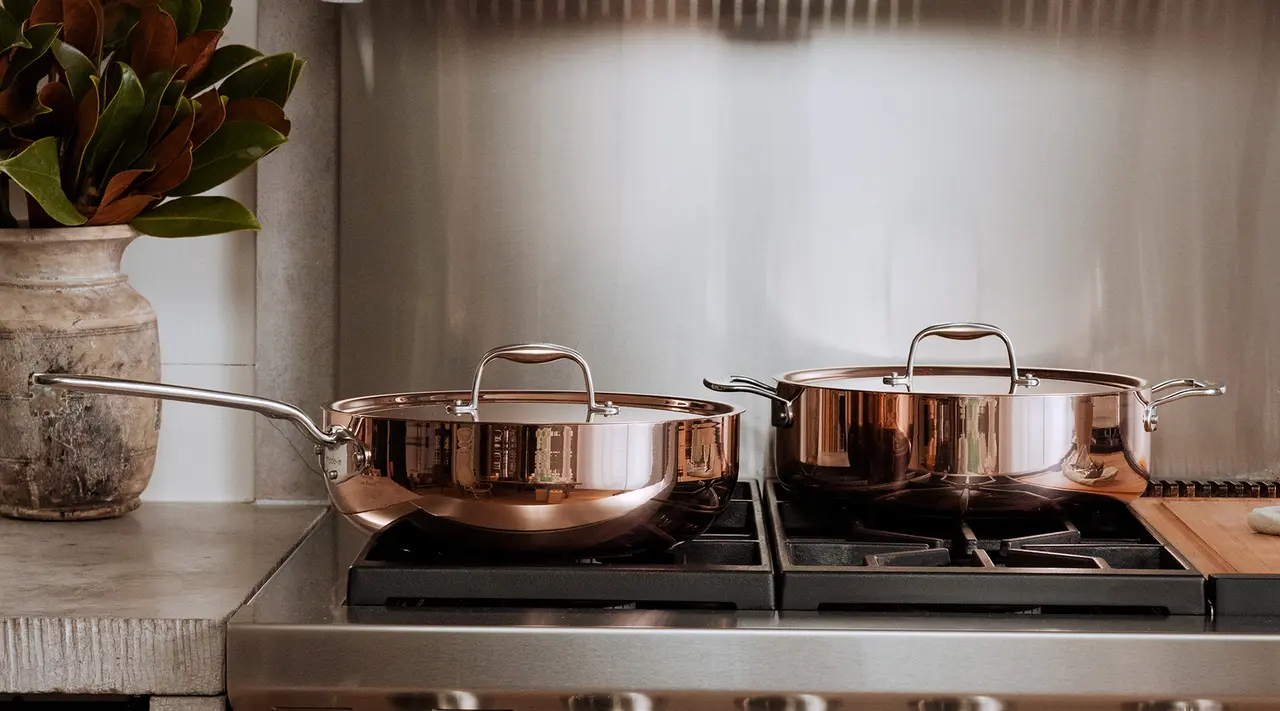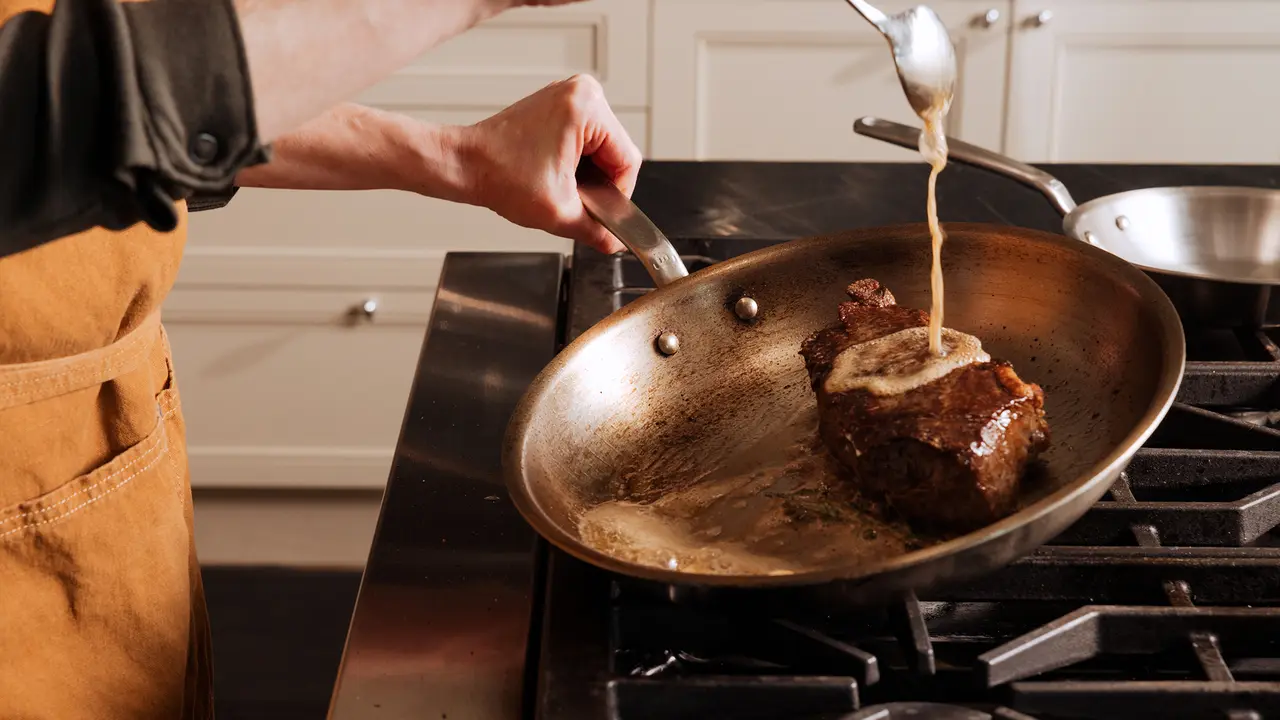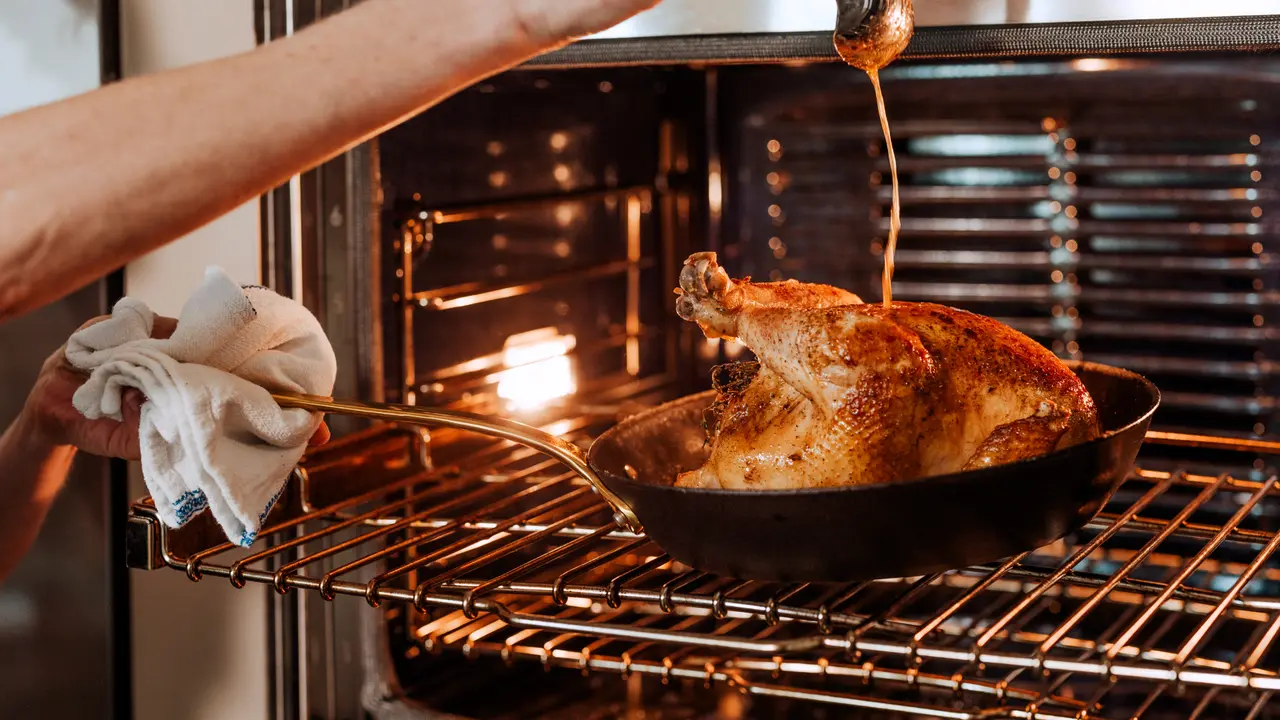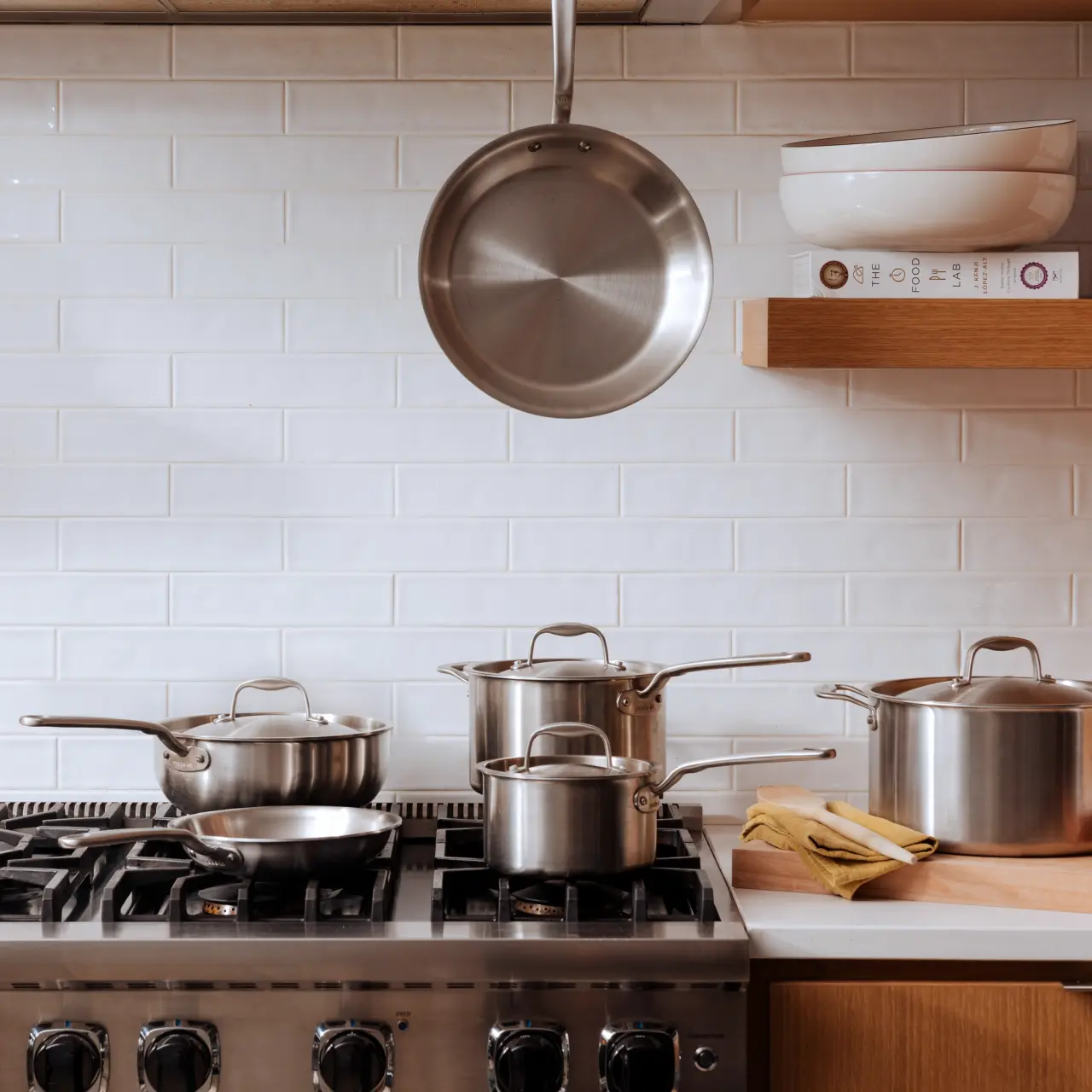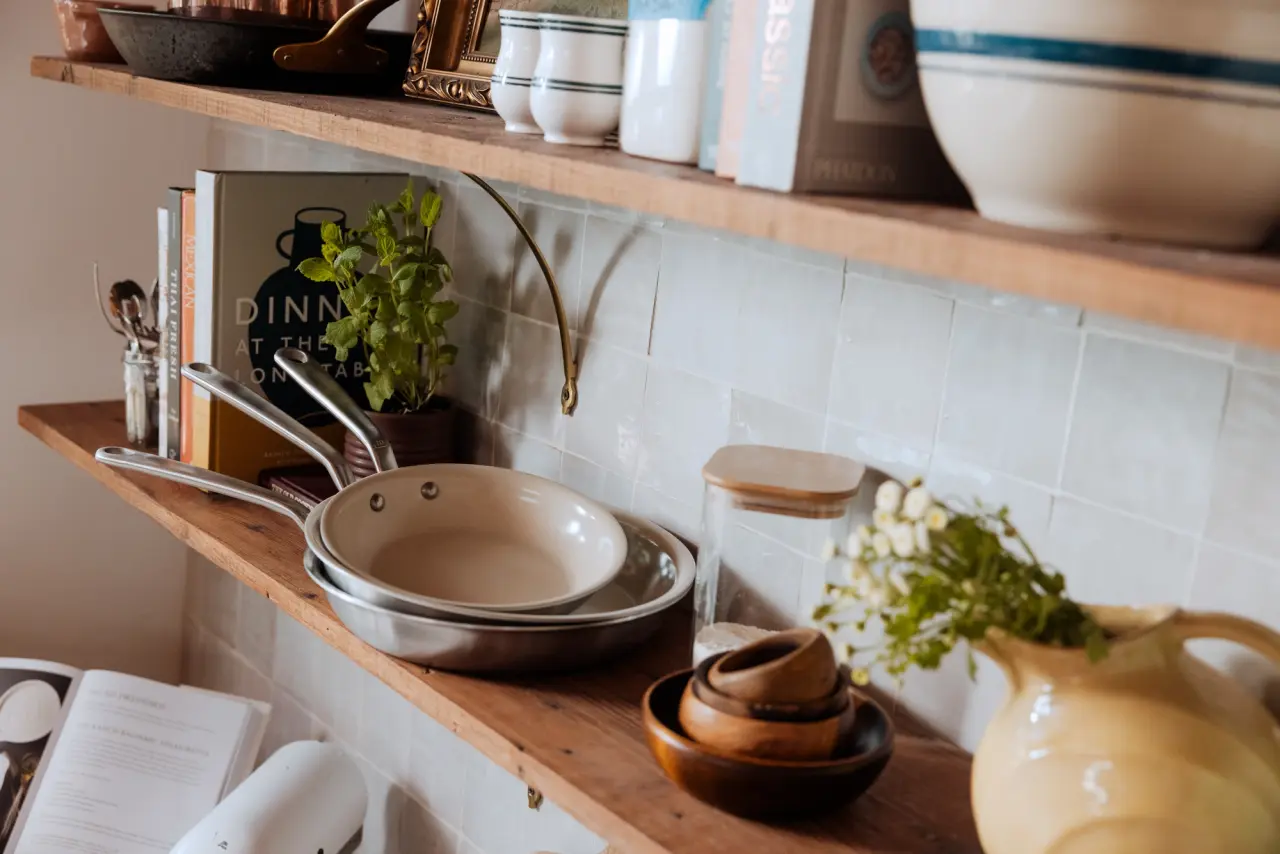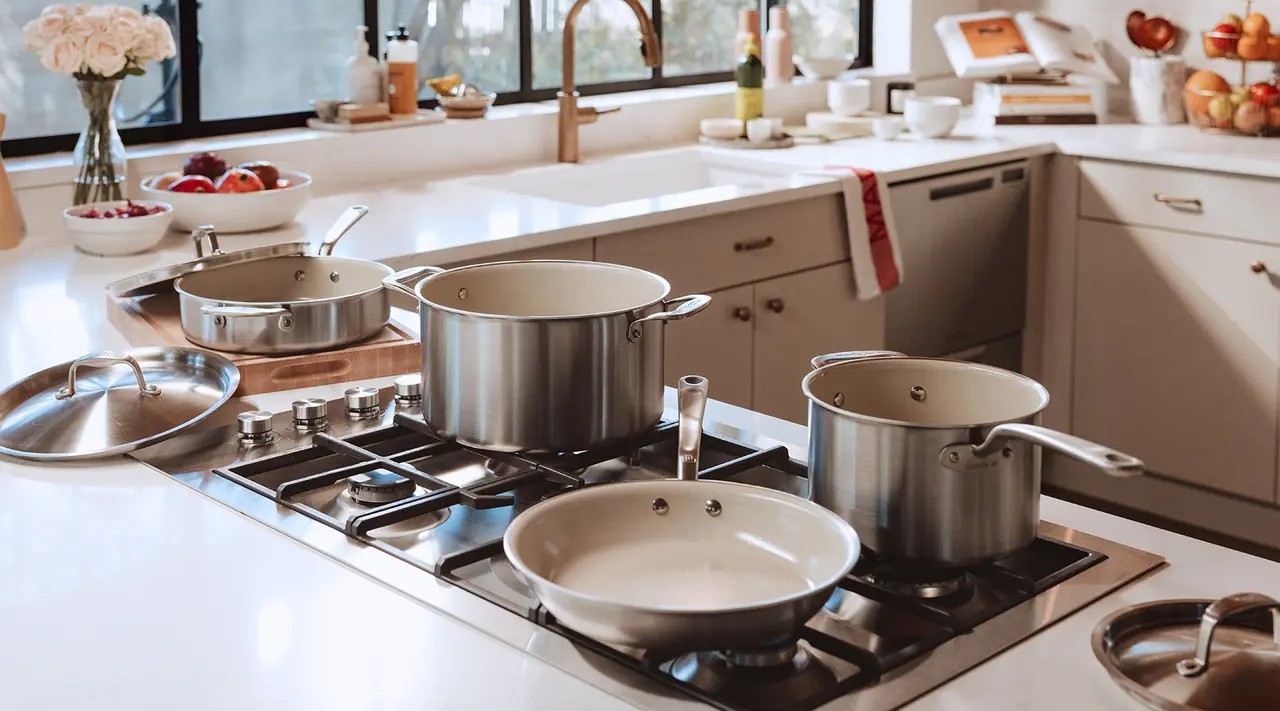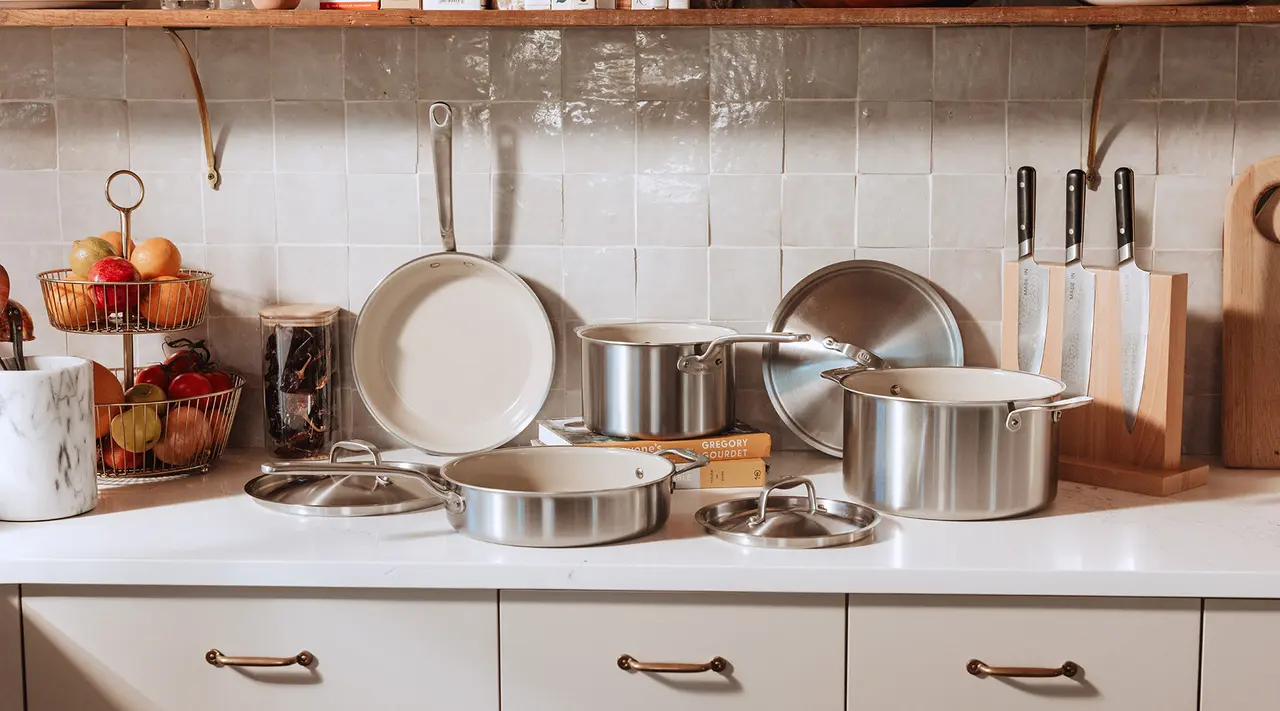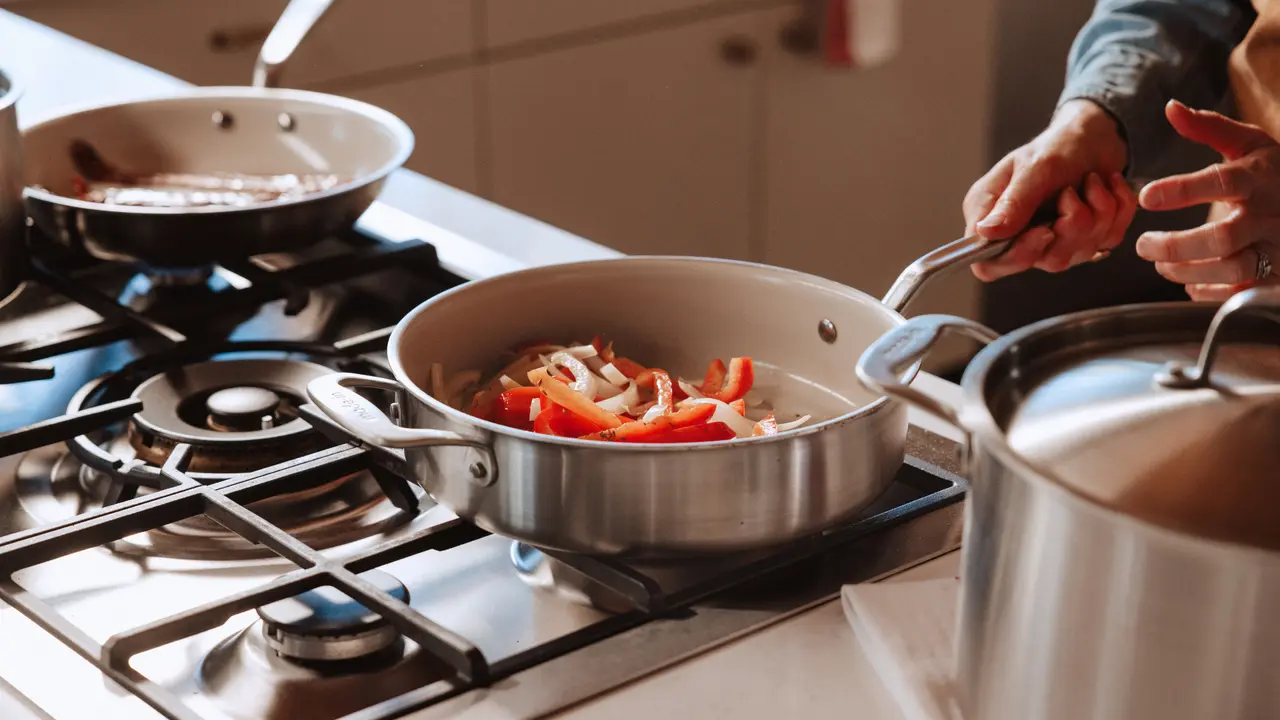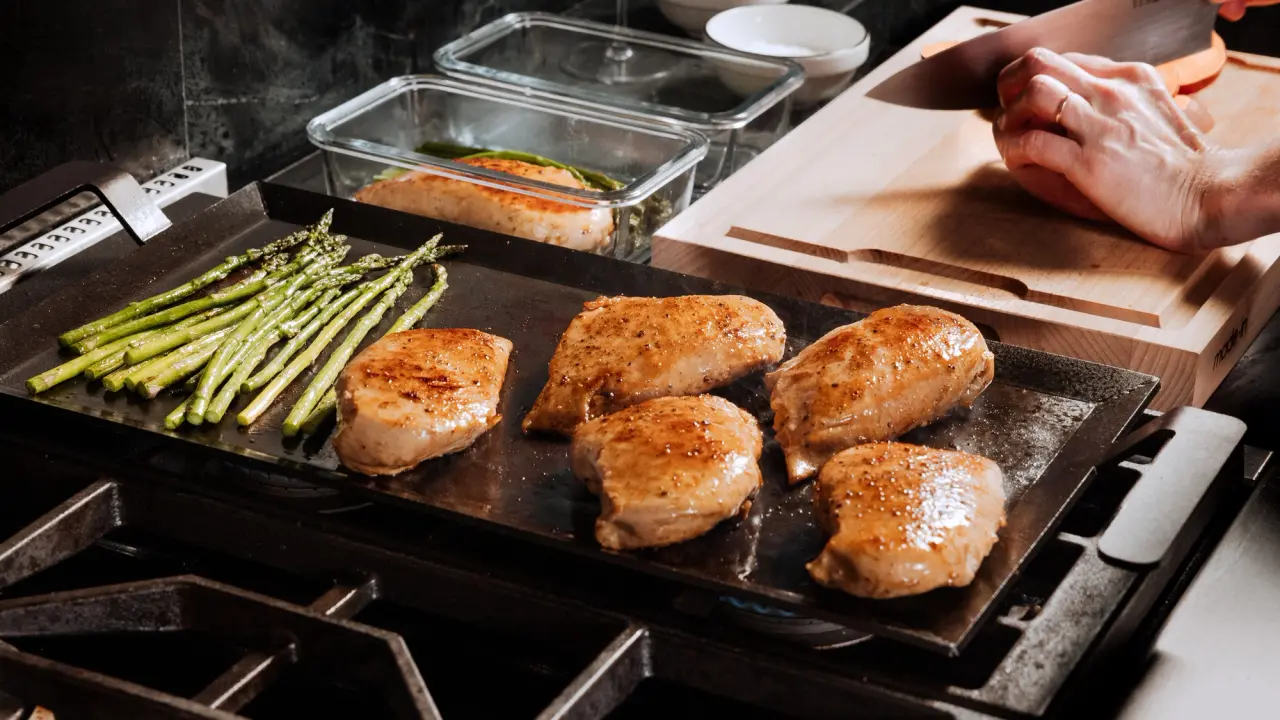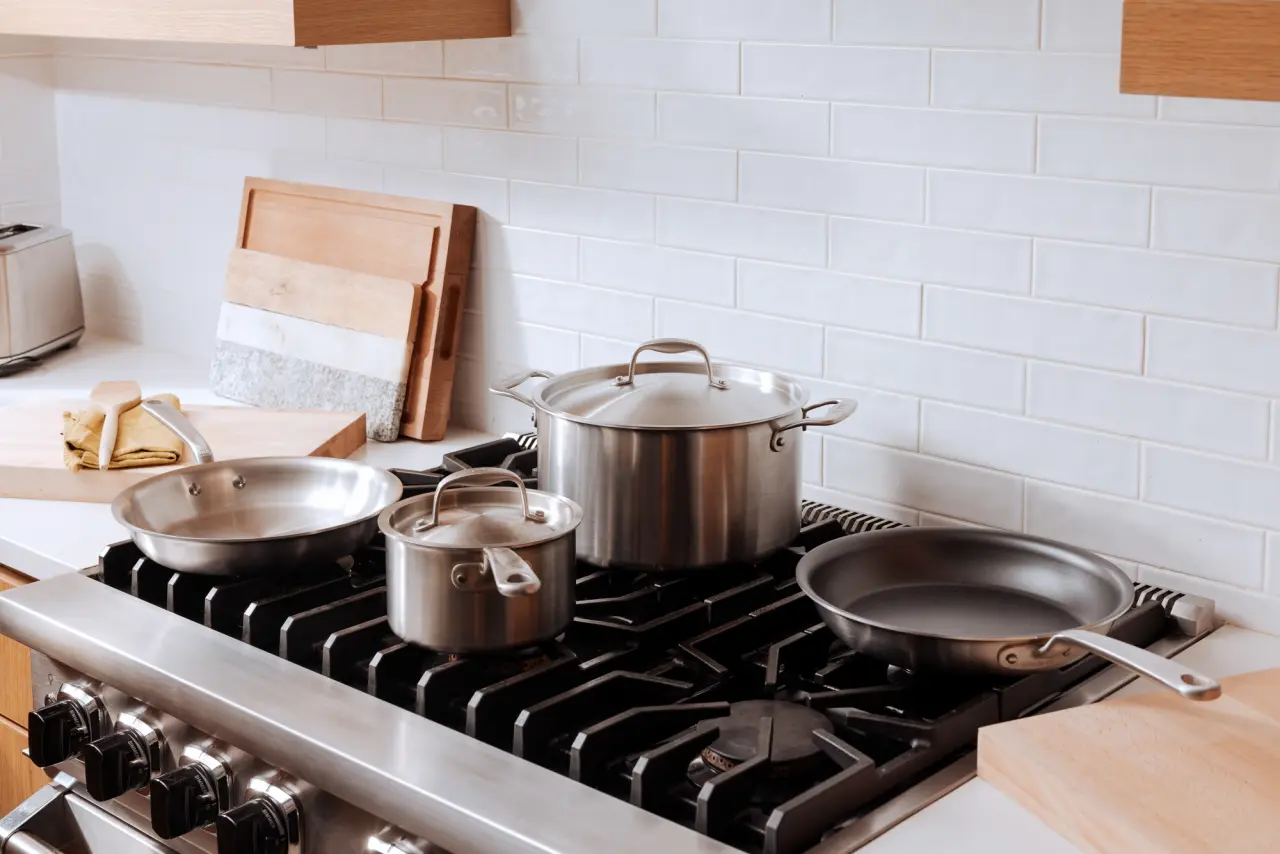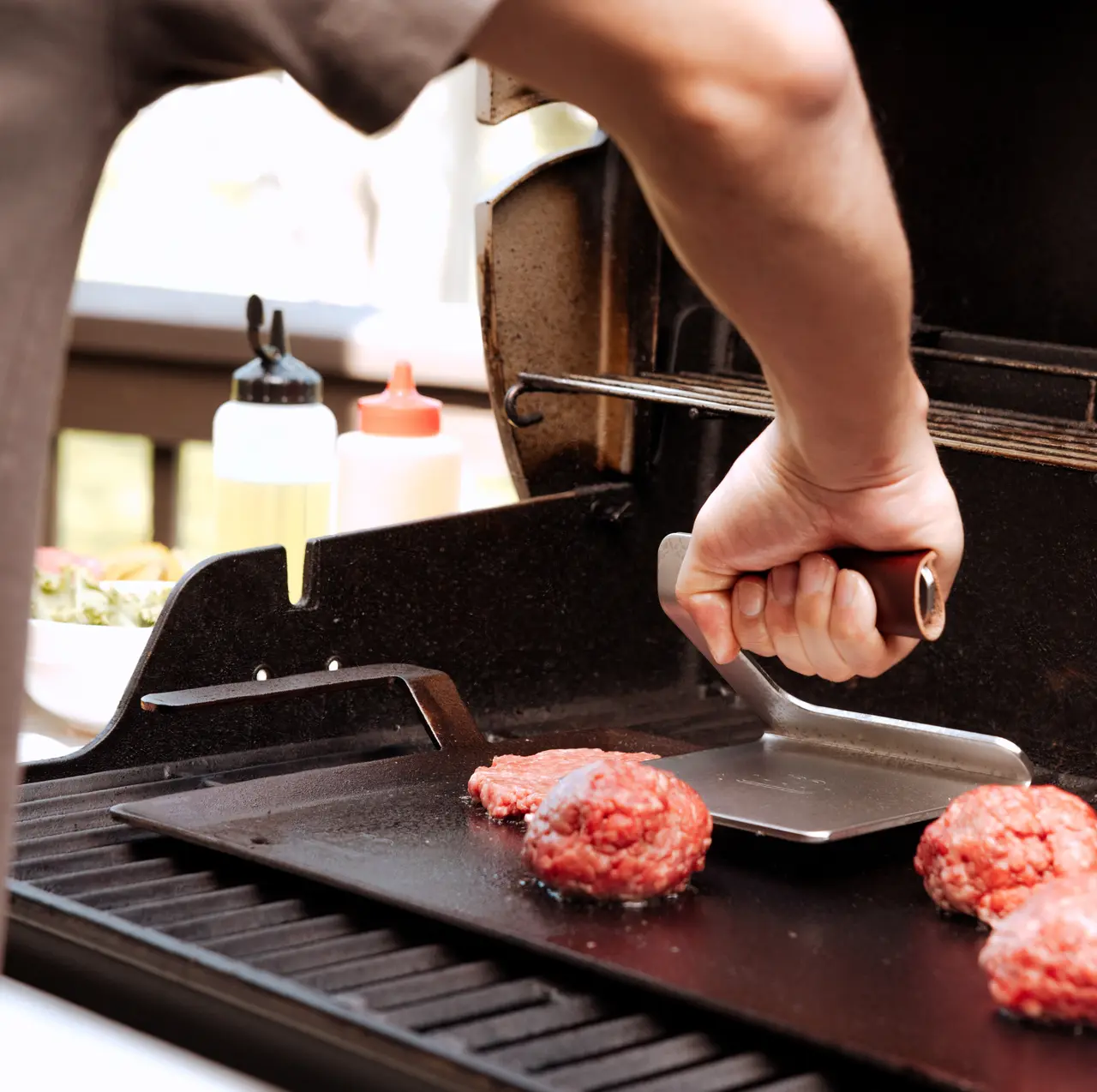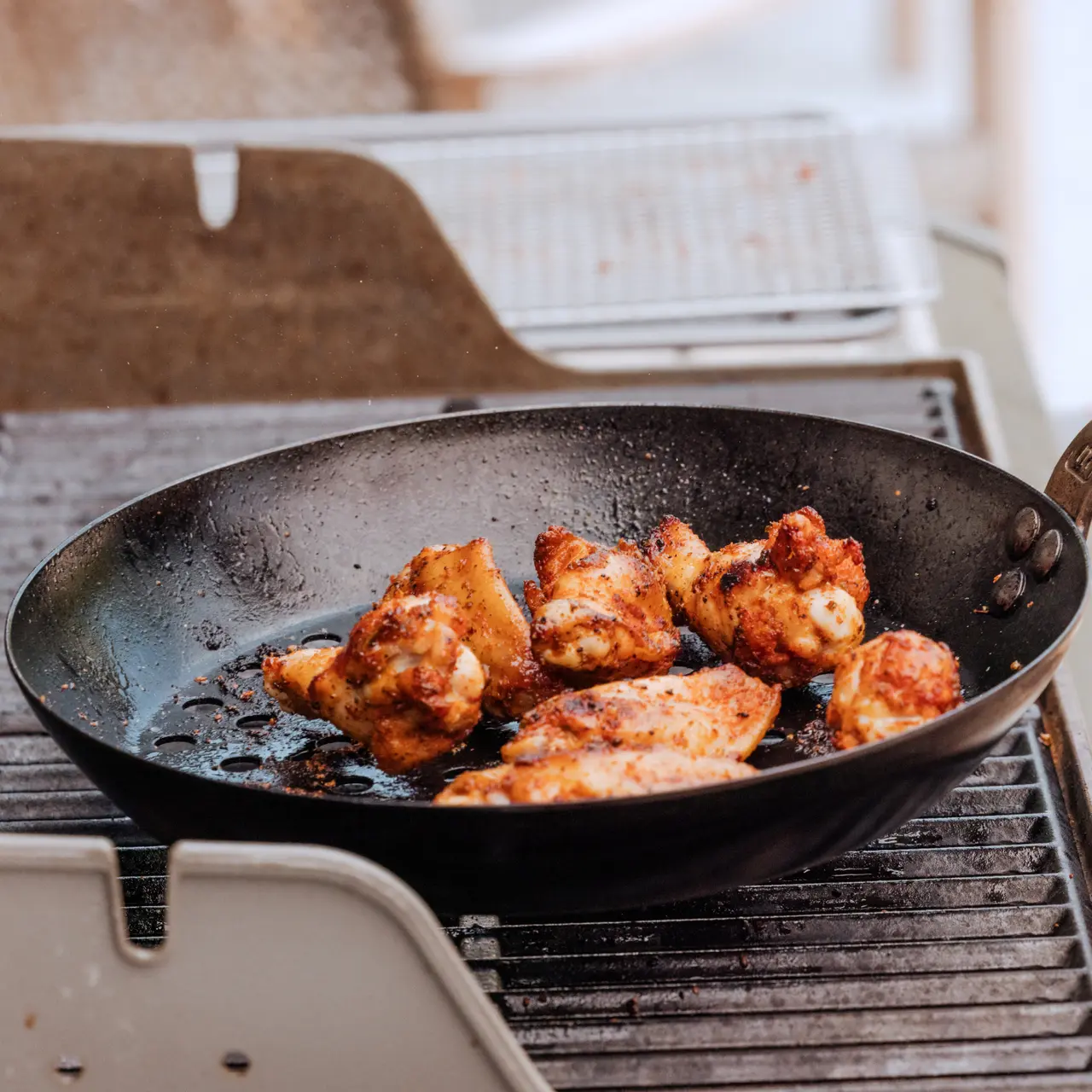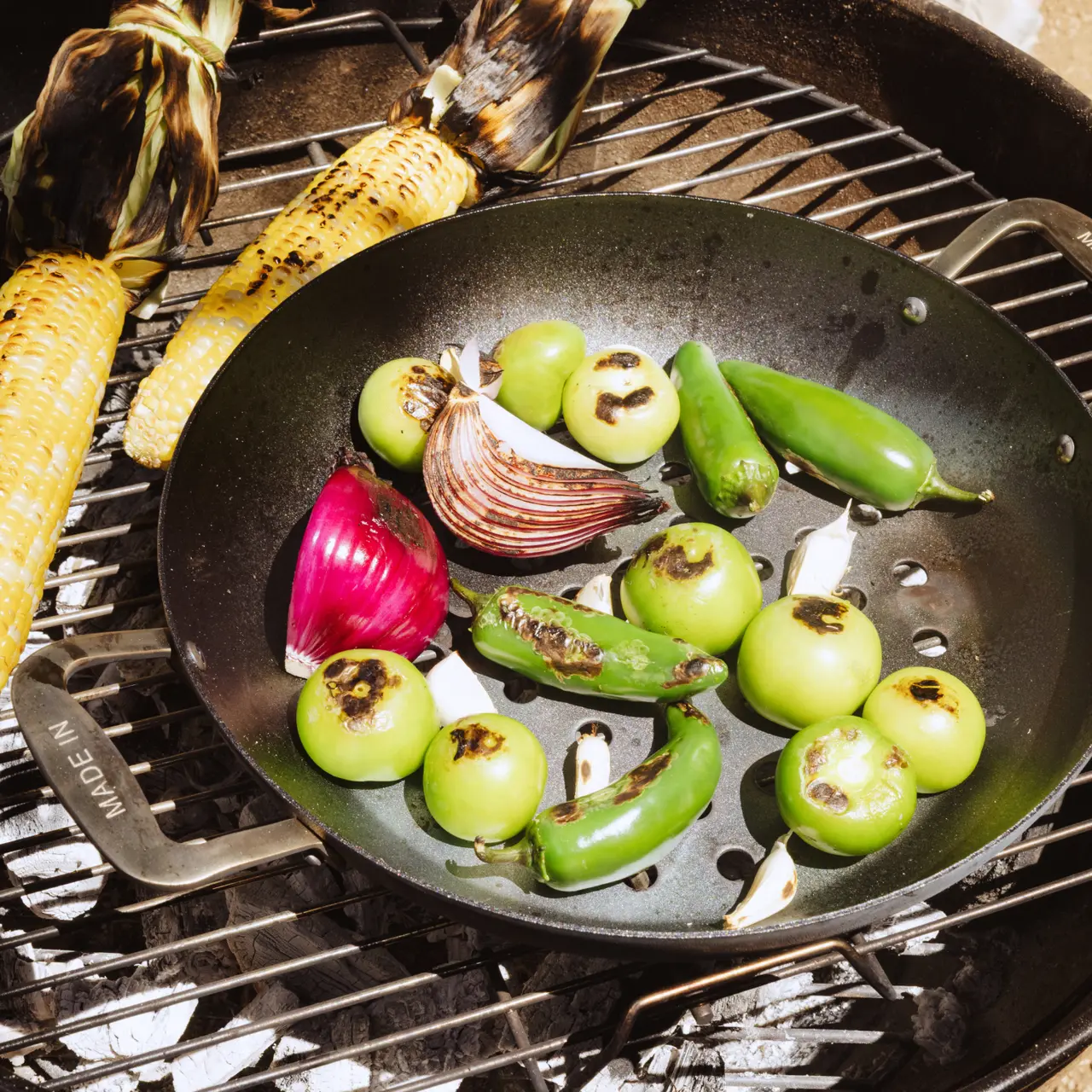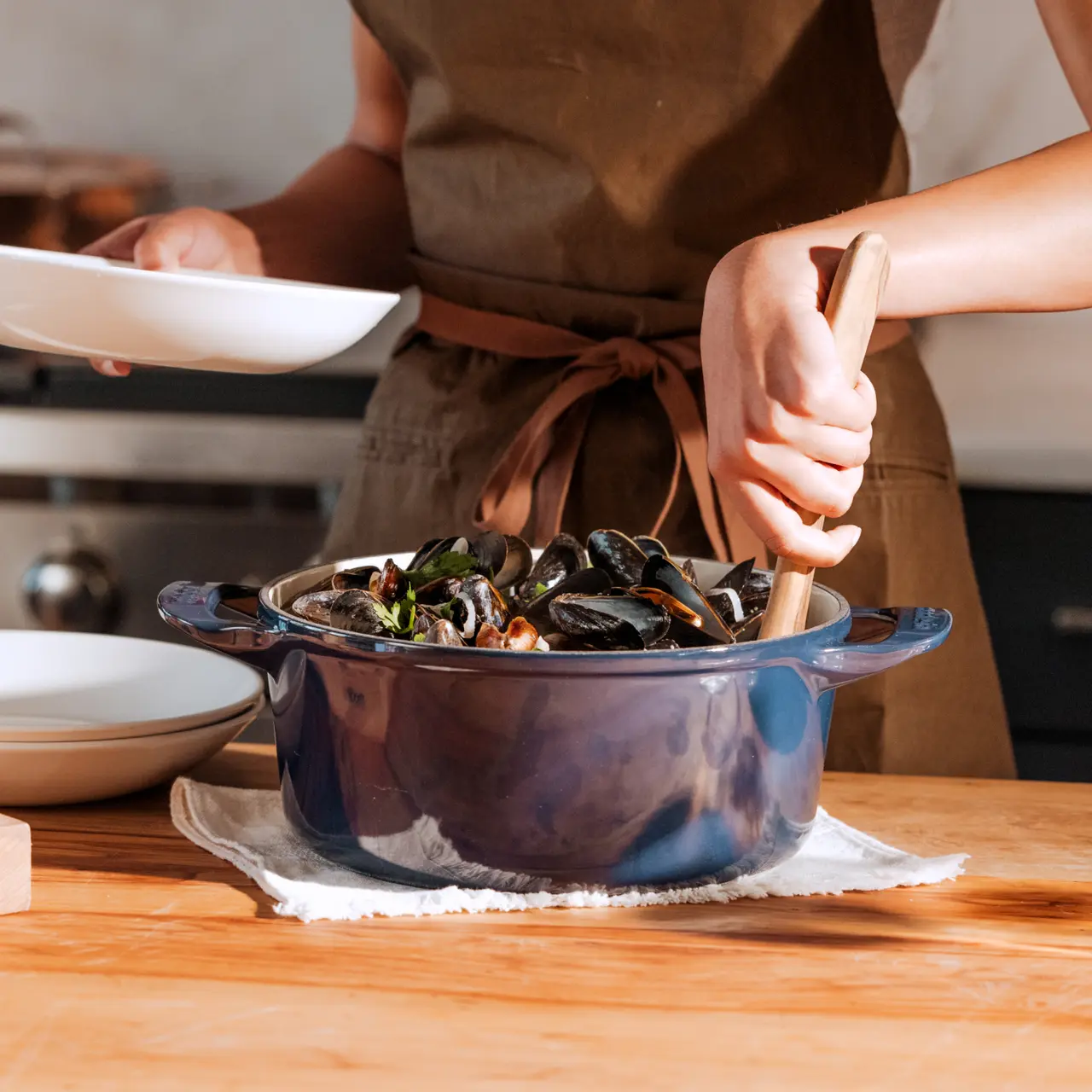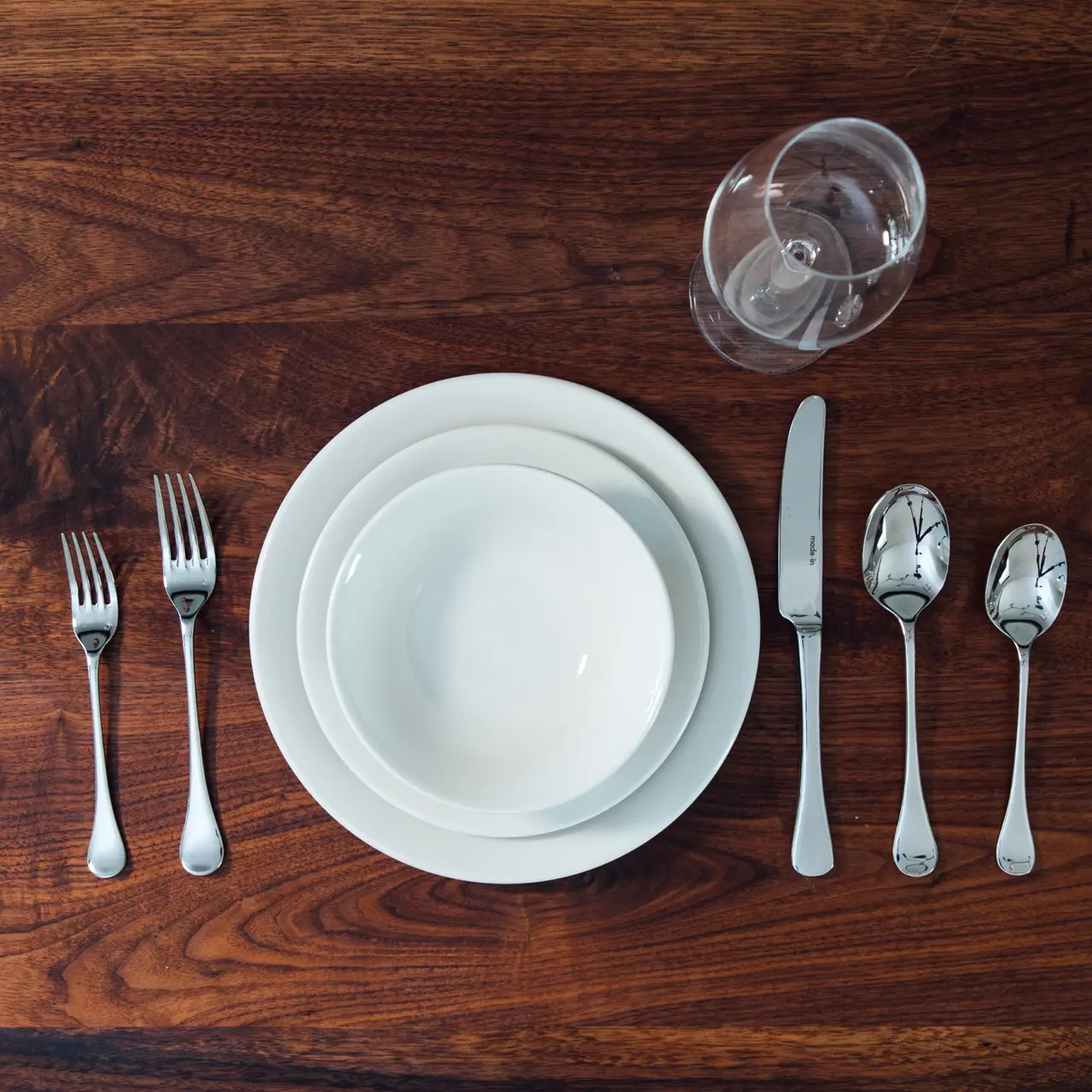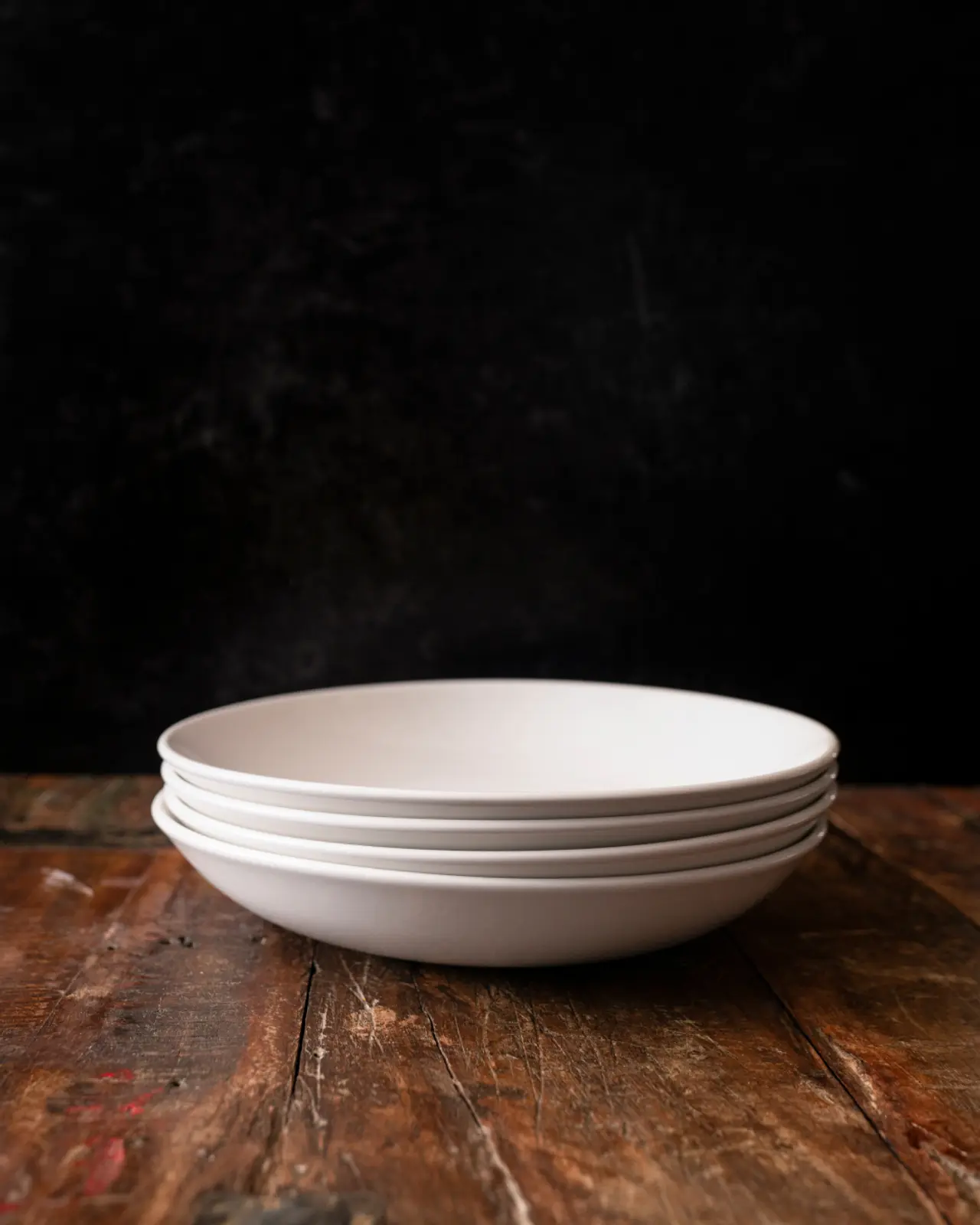First, to answer the titular question: no, copper by itself does not work on induction cooktops. As we’ve spoken about in articles like this one, induction works by using metal coils to generate heat in a pot or pan, with little to no energy wasted. It’s fast, efficient, and sustainable, and is widely considered to be better for your long-term health. Unfortunately, however, it’s not compatible with all metals—including copper.
There are, of course, a few workarounds to this problem—as well as some excellent, naturally induction-compatible options, all of which we’ll be discussing today.
Compatibility of Copper with Induction Cooktops
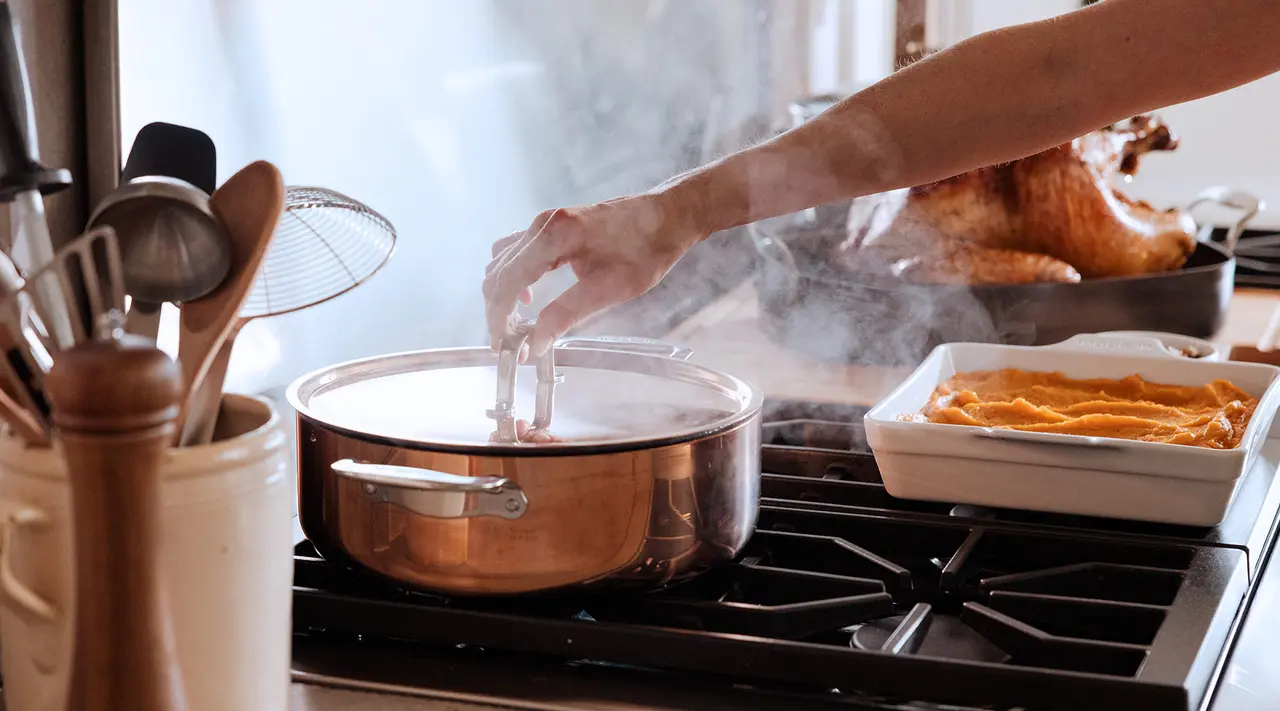
Induction cooktops use a magnetic field to stimulate the atoms in a piece of cookware, causing friction which then creates heat directly in the pot or pan. This, of course, requires a ferromagnetic metal, i.e. a metal that has magnetic properties. While iron—the main component in alloys like stainless steel, carbon steel, and cast iron—is an excellent choice for induction cooking, copper is, sadly, not.
The Composition of Copper Cookware
Copper cookware isn’t just luxurious: it’s also a delight to use, heating efficiently and responding almost instantly to temperature changes. It works beautifully for searing and sautéing, and is also the material of choice for many pastry chefs, who rely on copper’s even heat distribution and responsiveness for making delicate caramels, jams, and other sugar-based recipes. And while it’s not compatible with induction, copper is still an excellent option for gas or electric stove owners.
Alternatives to Copper Cookware
So if copper’s off the menu, what can you use to cook on your fancy new induction stove?
As we discussed in our post on induction compatible cookware, you’ve actually got a wealth of options to pick from—including some of our favorites, like stainless steel and carbon steel. These materials also happen to be great at distributing heat evenly, perfect for quick, high heat cooking methods as well as for oven roasting and baking. Cast iron is another solid, induction compatible choice—and yes, that includes enameled cast iron.
How to Choose the Right Cookware for Induction
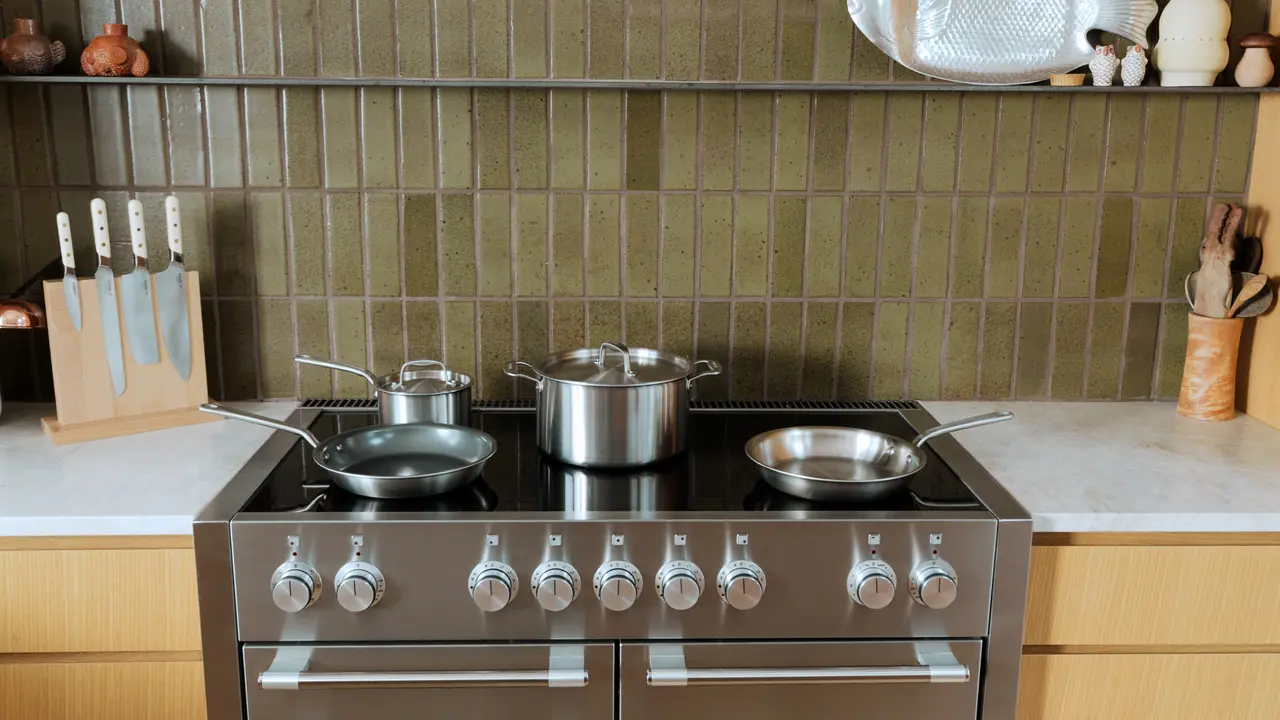
Before you get too discouraged, there is a small caveat to the “copper is not induction compatible” rule: although pure copper, or tin-lined copper, is not ferromagnetic, copper pots or pans lined with stainless steel can sometimes work on induction stoves (plus, they don’t require retinning like traditional tin-lined copper pans). This isn’t true of all stainless steel-lined copper cookware, however: double check the manufacturer notes to ensure that yours is compatible.
You can also test your copper cookware with a fridge magnet to see if it repels or is attracted to it. Any interaction with a magnet indicates ferromagnetism (and thus potential induction compatibility), whereas it’s a no-go on induction if nothing happens.
<blockquote class="tiktok-embed" cite="https://www.tiktok.com/@madeincookware/video/7375302282495135019" data-video-id="7375302282495135019" style="max-width: 605px;min-width: 325px;" > <section> <a target="_blank" title="@madeincookware" href="https://www.tiktok.com/@madeincookware?refer=embed">@madeincookware</a> If you’re looking to buy the best of the best in terms of cookware, here are the top things to consider about Copper pots and pans. <a title="copper" target="_blank" href="https://www.tiktok.com/tag/copper?refer=embed">#copper</a> <a title="cookware" target="_blank" href="https://www.tiktok.com/tag/cookware?refer=embed">#cookware</a> <a title="kitchenware" target="_blank" href="https://www.tiktok.com/tag/kitchenware?refer=embed">#kitchenware</a> <a title="coppercookware" target="_blank" href="https://www.tiktok.com/tag/coppercookware?refer=embed">#coppercookware</a> <a title="kitchenorganization" target="_blank" href="https://www.tiktok.com/tag/kitchenorganization?refer=embed">#kitchenorganization</a> <a target="_blank" title="♬ original sound - Made In Cookware" href="https://www.tiktok.com/music/original-sound-7375302289503963947?refer=embed">♬ original sound - Made In Cookware</a> </section> </blockquote> <script async src="https://www.tiktok.com/embed.js"></script>
Ready to Shop?
A copper pot or pan is as functional as it is beautiful, making it an heirloom-worthy investment. With that said, you definitely want to make sure that your particular piece of cookware will actually work on your stove.
While our French-made Copper Collection is not induction compatible, it’s both fully-cladded and oven-safe up to 800F—and, with a stainless steel interior, won’t require retinning or any other special maintenance, and can last for a lifetime.
